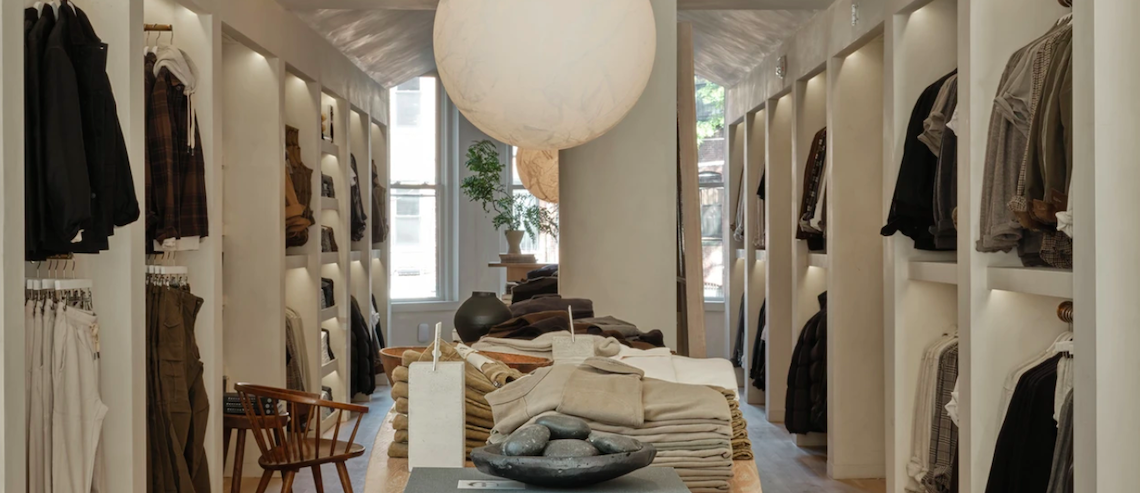With brick-and-mortar retail foot traffic slowly returning, brands across the fashion landscape are looking to open in new markets. In the last three months, several fashion brands have turned to one city, in particular, for retail expansion: Boston.
Buck Mason, a DTC-focused men’s brand founded in 2013, is opening a large two-story store on Boston’s Newbury Street in December. The Boston store, coming just a few months after its Nashville store opening in October, will be the sixth store opening for Buck Mason this year. According to co-founder and CEO Erik Allen Ford, Boston is one of the top 20 markets for the brand’s online sales and has a high potential for brick-and-mortar growth.
“The Back Bay area [where the Newbury Street store will open] has become a place young professionals hang out, shop, live and otherwise congregate in Boston,” said Allen Ford. “There are likely fewer neighborhoods in Boston where we would want a store than in greater NYC, where we already have four locations. But there is untapped opportunity for us [in Boston] beyond this first location.”
Allen Ford said the appeal of the store’s location are the local population of young professionals, who are a core audience for the brand, and Newbury Street’s popularity with women shoppers. Buck Mason launched its women’s business over the summer.
“We expect that our recently launched women’s business will flourish at this location as a result of the makeup of the neighborhood and shopper on Newbury,” said Allen Ford, citing e-commerce data the brand collected about its Boston customer. “So the balance of business between men’s and women’s may be a little different than in some of our more established locations [and lean more heavily toward women’s].”
Jewelry brand Studs chose Boston as one of three cities where it opened new stores this year, along with Los Angeles and Austin. The Boston location opened in June. Before the year is over, it will open more in Miami and New York.
Anna Harman, co-founder and CEO of Studs, echoed Allen Ford’s assessment of Boston as a market where brands can specifically target younger consumers. The average age of a Boston resident is 32, five years younger than New York City, according to census data. And the city has more than 150,000 college students.
“We had a strong online audience in Massachusetts already and felt really excited about the Gen-Z and millennial customer that goes to college or who works in the city or its outskirts,” Harman said.
Nike opened two stores in Boston, both unique retail concepts, in August. One is an outlet store and the other a small-format, digital-focused store in line with Nike’s retail strategy outlined in June of 2020 to open 150-200 smaller stores around the country. Meanwhile, Zegna announced a new boutique store in October to open this year on Newbury Street in Boston.
Boston is in the midst of its largest development boom in history, with nearly 100 new developments from apartment buildings to retail spaces currently being built across the city, according to WBUR, Boston’s public radio station. Both Allen Ford and Harman declined to disclose the exact details of the leases they signed in Boston, but the city’s retail lease signings surpassed New York in July of this year, a rare occurrence in the history of the two cities. Commercial real estate advisor Wronka published data in February showing Boston’s average expected retail rent for 2021, a little less than $25 per square foot, is low compared to both retail rents in other cities and projected future prices in Boston.




